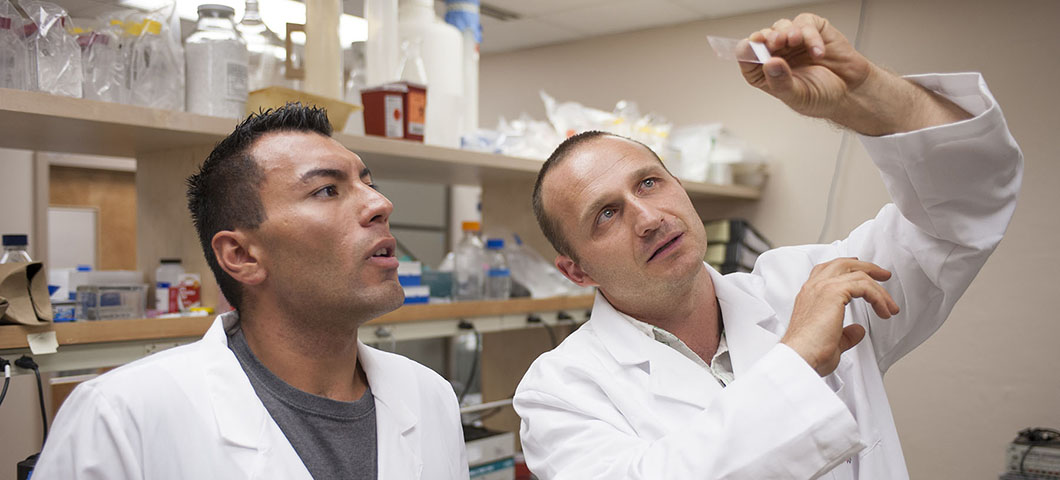Kopriva Faculty Lectureship
Lecturers at MSU are selected based on the excellence and interdisciplinary impact
of their research and the breadth of general interest in that research. In addition,
because the lectures are open to the entire campus community and the general public,
substantial consideration is given to the selection of lecturers that are excellent
communicators as well as excellent scientists.
Recipients
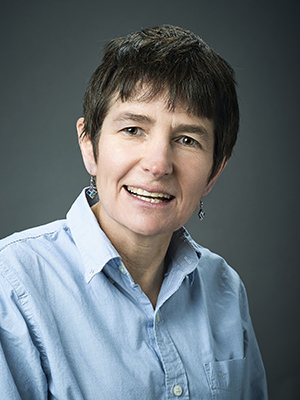
Valérie Copié
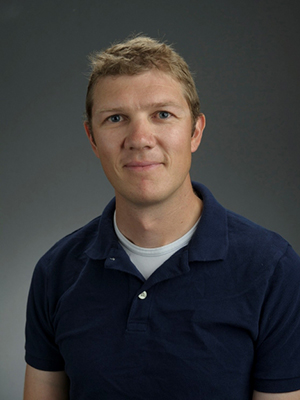
Andrew Hoegh
Andy is an assistant professor of Statistics at Montana State University. His research is focusedon the interface between complex data structures, biological systems, and novel statistical methods.
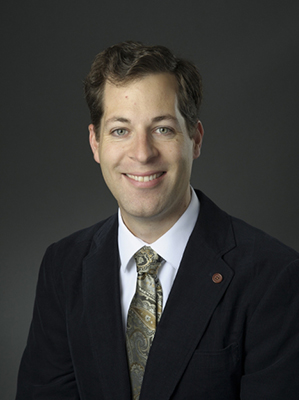
Dominique Zosso
Dominique Zosso studies the importance and contribution of applied mathematics research around biomedical image analysis to interdisciplinary work in complex biological systems.
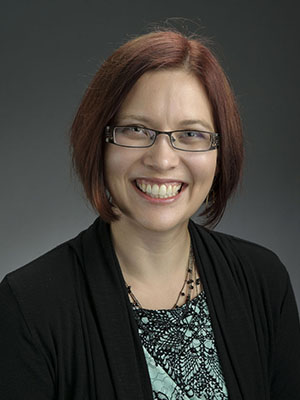
Nicole Carnegie
Nicole Carnegie studies methodological issues related to infectious disease transmission and control. This work incorporates elements of infectious disease modeling, statistical modeling of networks and causal inference methodology, with a strong substantive grounding in the area of HIV prevention.

Brian Bothner
Brian Bothner's MSU research lab has been pursuing novel applications of mass spectrometry to study biology for more than 20 years. His research is focused on addressing current problems in society, such as energy production and storage. His research group also works on viruses found in hot springs in Yellowstone National Park.
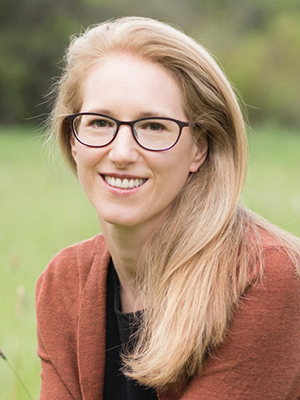
Raina Plowright
Plowright's MSU lab studies the dynamics of infectious diseases in reservoir hosts, the process of pathogen spillover and infectious diseases in species of conservation concern. They work across multiple disciplines including ecology, epidemiology, immunology, microbiology and mathematical modeling.
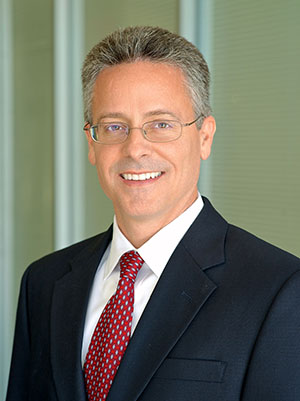
Matthew Byerly, MD
Matthew Byerly, MD is the director of the Center for Mental Health Research and Recovery at MSU. Byerly’s research interests have included clinical effectiveness research, a type of research that studies the impact, including cost-effectiveness, of different mental health care approaches in real-life clinical settings, as well as clinical and translational studies of interventions for people who have fragile X syndrome and Down syndrome, two of the most prevalent neurodevelopmental disorders. In addition to his research, Byerly has served on multiple expert panels related to medication treatments and as a member of the Food and Drug Administration Psychopharmacologic Drugs Advisory Committee.
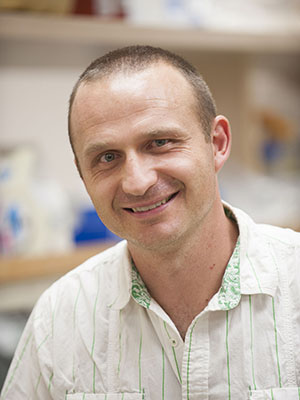
Ron June
Ron June’s MSU lab researches osteoarthritis, which is an aging-related disease in which cartilage deteriorates resulting in painful joints and decreased mobility. Our long term goal is to develop novel treatment strategies which utilize protein transduction and build upon developed knowledge involving chondrocyte mechanotransduction. The lab studies cellular mechanotransduction, or how cells respond to mechanical cues, and synovial joint drug delivery, specifically a bioactive intraarticular delivery platform. The lab’s long-term goal is to develop novel treatment strategies that use protein transduction and build upon what we know about how cartilage cells respond to mechanical loads caused by forces, such as gravity, and activities, such as walking.
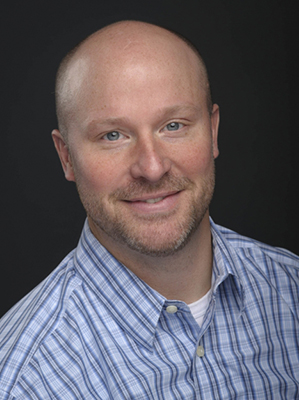
Seth Walk
Seth Walk’s MSU lab studies how disease-causing microbes interact with the human gastrointestinal tract. In 2014, Walk received a $100,000, 18-month Grand Challenges Explorations grant from the Bill & Melinda Gates Foundation. Walk and two collaborators – Blake Wiedenheft at MSU and Jason Spence at the University of Michigan – will develop a new tool to study gastrointestinal tract dysbiosis more effectively. Dysbiosis refers to an imbalance of microorganisms that causes a variety of health problems, including gastroenteritis and inflammatory bowel disease. Infections caused by certain pathogens and the loss of beneficial bacteria in the gastrointestinal tract can lead to dysbiosis.
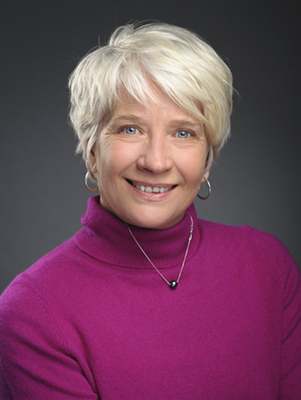
Sandra Halonen
Sandra Halonen is an associate professor in the Department of Microbiology & Cell Biollgy, Montana State University. She studies the effects of the parasite Toxoplasma Gondii on the human brain.

Tomáš Gedeon
Professor Gedeon’s interests lie in applied dynamical systems, neuroscience, discrete optimization theory and modeling. He actively collaborates with Center for Computational Biology at MSU on neural coding problems and with colleagues in the Computer Science Department on algorithm development.

Bern Kohler
Bern Kohler is a professor in the Department of Chemistry & Biochemistry at Montana State University. He is the recipient of a Kopriva MSU Faculty Lectureship in Interdisciplinary Biomedical Sciences. Dr. Kohler’s research focuses on ultrafast laser spectroscopy, DNA photophysics and photochemistry, and solar energy conversion.
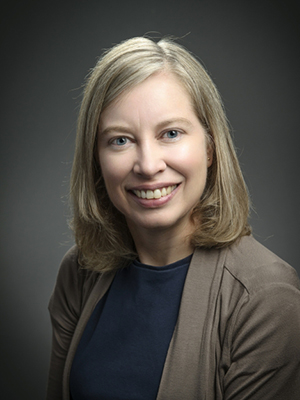
Mary Cloninger
Mary Cloninger is an associate professor in the Department of Chemistry & Biochemistry at Montana State University. She is the recipient of a Kopriva MSU Faculty Lectureship in Interdisciplinary Biomedical Sciences. Dr. Cloninger’s research program is based on key questions in chemical biology, including the signaling mechanisms used to control cell functions and the processes that mediate the adhesions and metastatic migrations of cancer cells. Her lab’s approach is to synthesize synthetic multivalent frameworks for the study cellular recognition events.

